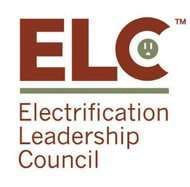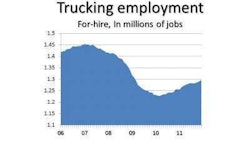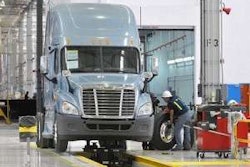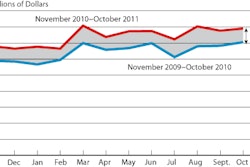
A new coalition of executives from companies in the transportation and utility industries on Friday, Jan. 6, announced it has come together to design a large-scale electric vehicle demonstration project that will help create a comprehensive national model for EV deployment.
The Electrification Leadership Council is a coalition of key stakeholders throughout the EV supply chain who tout the expertise and resources required to engage federal, state, regional and local agencies and coalitions, utility companies, vehicle manufacturers and financial institutions to help overcome the barriers to broad-scale EV deployment.
ELC members include FedEx Express, Hertz, Navistar, Azure Dynamics, A123 Systems, Coda Automotive, Pacific Gas and Electric Co., ECOtality, Automatiks, GE Capital, large delivery service companies and vehicle manufacturers, among other members, along with representatives from national, state and local agencies.
“Our Council recognizes that no one entity can create a comprehensive solution for the broad-scale deployment of EVs,” says Mark Aubry, vice president of Navistar’s eStar Electric Vehicle Brand. “That’s why we have come together to create a public and private model that will help us understand what will be required to operate thousands of EVs within a community.”
The ELC’s strategy also leverages the work of other prominent national organizations such as the Electrification Coalition and the Electric Drive Transportation Association that are promoting public policies and education to facilitate the deployment of EVs. The ELC’s strategy is designed to ultimately achieve the broader societal goals of fostering an EV industry, improving urban quality of life, reducing greenhouse gas emissions and supporting energy independence.
The ELC’s initial task is to design its demonstration project that will focus on a large-scale deployment of EVs within densely populated local markets where all of the components of an EV Ecosystem can be brought together to better understand the interoperability between EVs and the electric grid across a variety of vehicle classes and applications. The EV Ecosystem components include everything from EV deployment, charging stations, the electrical grid, energy storage devices and battery second-life applications, to communication systems and support networks.
“This is about developing a more efficient, effective and environmentally friendly EV Ecosystem,” says Dennis Beal, vice president of global vehicles for FedEx Express. “We work with many companies across the EV Ecosystem, have learned a lot and are hungry to share our learning, expand collaboration and further the future of transportation electrification with this large-scale cross-industry project. It is the responsible thing to do across the board – environmentally, economically and for our national security as we reduce our dependence on foreign oil and move toward environmentally friendly technologies.”
The ELC says it will engage with communities that already have developed collaborative efforts to foster EV readiness related to infrastructure planning, regulatory alignment and public awareness. The ELC says it will help these communities close their EV readiness gaps at the grassroots level by addressing barriers to EV deployment that typically include charging infrastructure, government and regulatory policy, vehicle availability and demand, cost of ownership and vehicle support, and public awareness and acceptance.
The ELC is evaluating a number of local markets for the demonstration projects and will announce sites once plans are in place.











